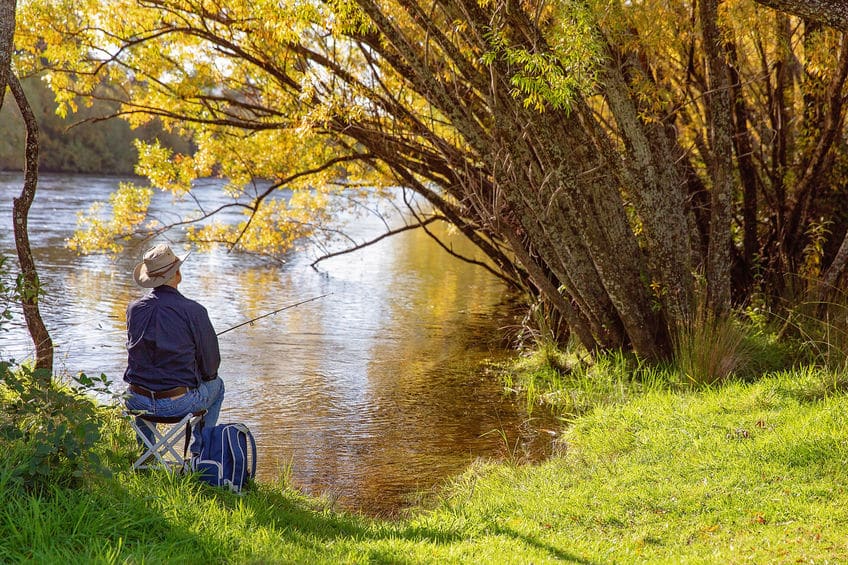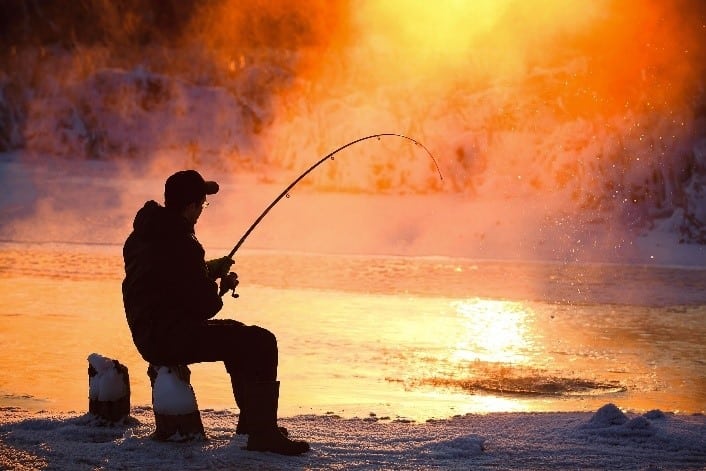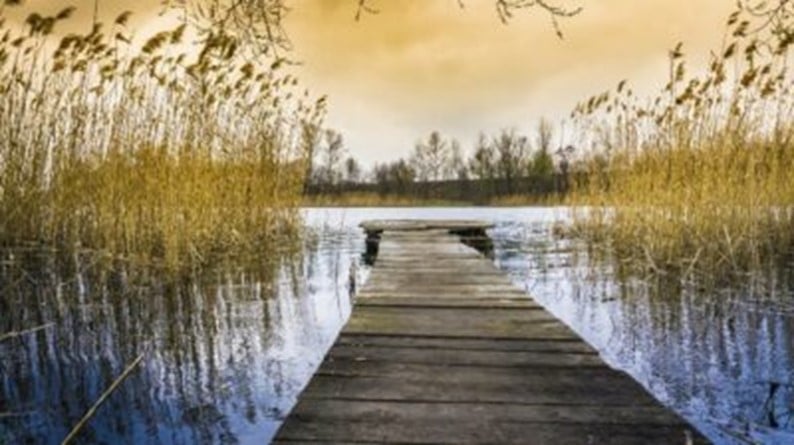Why the Farm Bill’s Conservation Title Is Important to Sportfishing
If you’ve ever paid attention to the federal legislative branch, you probably realize that there are very few guarantees about what Congress will pass. One safe bet, however, is that every five years Congress will attempt to reauthorize the Farm Bill, the main piece of federal legislation addressing agriculture policy. The Farm Bill was most recently reauthorized in 2018, which means that it’s time for Congress to pass it again.
While the Farm Bill funds aspects you’d typically expect in agriculture and food policy, such as subsidies and crop insurance, it also houses the federal government’s largest investment in private lands and waters conservation, known better as the Conservation Title. The Conservation Title funds several programs that allow farmers to voluntarily dedicate a portion of their lands to conservation programs, conserving private lands and the waters that run through them throughout the country.
While fisheries may not be the most obvious beneficiary of agricultural conservation, programs within the Conservation Title help expand angler access, create cleaner waters and produce healthier fisheries. The impacts of Farm Bill conservation programs range from mitigating sedimentation in freshwaters to preventing hypoxia in marine waters.
As we prepare for our Farm Bill advocacy this year, ASA and our outdoor recreation partners will work to maintain Conservation Title programs benefitting freshwater and marine fisheries and to open new private lands to fishing. The following programs represent some of the many Farm Bill policies that help conserve America’s fisheries.
The Environmental Quality Incentives Program
 The Environmental Quality Incentives Program (EQIP) allows farmers to voluntarily enhance water quality and mitigate runoff and sedimentation. Under this program, farmers receive payments for the purchase, growth and upkeep of vegetation that will keep soil and sedimentation in place, lowering the risk of erosion and soil runoff. Sedimentation can pollute waterways, making fish populations unstable throughout the farm’s neighboring waters.
The Environmental Quality Incentives Program (EQIP) allows farmers to voluntarily enhance water quality and mitigate runoff and sedimentation. Under this program, farmers receive payments for the purchase, growth and upkeep of vegetation that will keep soil and sedimentation in place, lowering the risk of erosion and soil runoff. Sedimentation can pollute waterways, making fish populations unstable throughout the farm’s neighboring waters.
EQIP also houses the Wildlife Habitat and Incentive Program (WHIP), which specifically addresses aquatic and wetland habitat protection, by allowing landowners to voluntarily contribute farmlands to the Department of Agriculture that are best suitable for fish and wildlife habitat development. These contributions will expand habitats, leading to more robust species and plenty of fish to catch.
The Conservation Reserve Program
 The Conservation Reserve Program (CRP) pays landowners money in exchange for an acreage of farmlands to be used for conservation purposes. CRP targets lands more valuable to wildlife than they are agriculturally productive, ensuring that farmers do not have to sacrifice financially viable lands.
The Conservation Reserve Program (CRP) pays landowners money in exchange for an acreage of farmlands to be used for conservation purposes. CRP targets lands more valuable to wildlife than they are agriculturally productive, ensuring that farmers do not have to sacrifice financially viable lands.
CRP also houses the Farmable Wetland Program, incentivizing landowners to restore wetlands, wetland buffer areas and aquatic vegetation. The Farmable Wetland Program also purchases wetland reserve easements through the Agriculture Conservation Easement Program, safeguarding aquatic habitats from development or farm use, which ensures that fish can thrive in these areas.
The Voluntary Public Access and Habitat Incentive Program
 The Conservation Title’s Voluntary Public Access and Habitat Incentive Program (VPA-HIP), incentivizes landowners to open access on their lands to fishing and hunting along with other forms of outdoor recreation, such as hiking or bird watching. Lack of access is one of the largest barriers individuals face when trying to go fishing, making this program important for current and future generations of anglers.
The Conservation Title’s Voluntary Public Access and Habitat Incentive Program (VPA-HIP), incentivizes landowners to open access on their lands to fishing and hunting along with other forms of outdoor recreation, such as hiking or bird watching. Lack of access is one of the largest barriers individuals face when trying to go fishing, making this program important for current and future generations of anglers.
As of January 2023, VPA-HIP has enrolled 3 million acres of private land to date, and we hope to see this number go up. VPA-HIP mandates that states must assume liability if farmers decide to open their land to hunting and fishing, mitigating a key concern for many landowners.
More to Come
Farmers voluntarily enrolling land in conservation programs isn’t just a smart policy for fish, it’s great for the country’s economy. Sportfishing generates $129 billion in economic output and supports 826 million jobs throughout the United States. These policies within the Conservation Title will only increase those numbers and ensure that the millions of anglers throughout the United States can continue accessing the water for years to come.
Throughout March, we expect both chambers of Congress to start meeting and debating over the Farm Bill. We look forward to starting our advocacy efforts with members of Congress and their staff on the Farm Bill, ensuring that the Conservation Title advances sensible fisheries policies throughout the country.
Share This Article, Choose Your Platform:
Recent Posts



